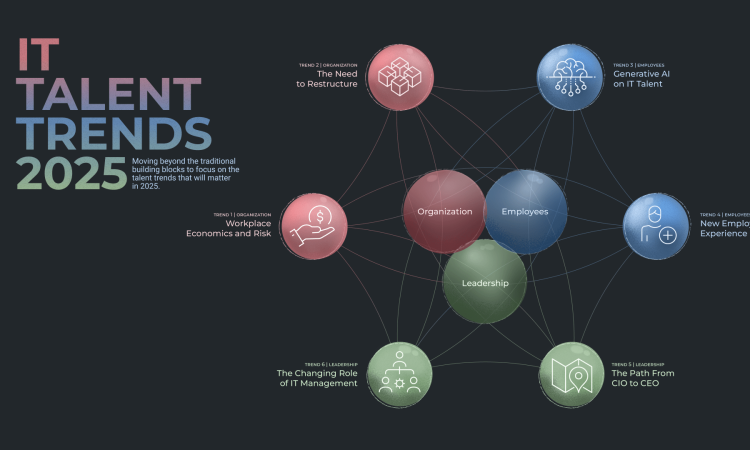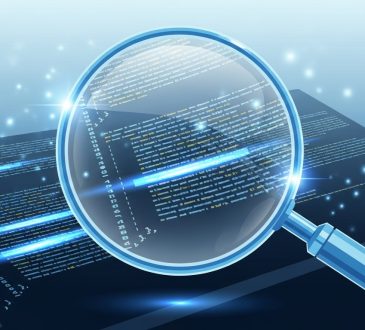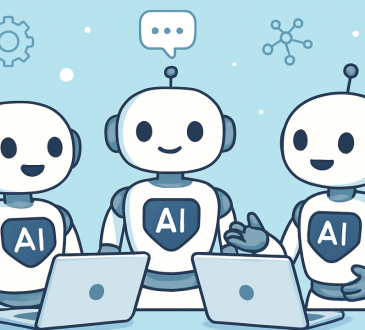Must-Read AI Industry News – April 2025: Trends Impacting Technology

April 2025 has been a defining month in the world of artificial intelligence, marked by groundbreaking innovations, powerful collaborations, and new global regulations shaping how we use technology.
AI is now everywhere — transforming industries from finance and healthcare to education, media, and cybersecurity. As companies and nations work to harness its power responsibly, here’s a look at the biggest trends and developments from this remarkable month in AI.
1. The Next Generation of AI Models Arrives
This April, the tech world witnessed the rise of a new class of AI models that are smarter, faster, and more versatile than ever before. These multimodal systems can understand and generate not just text, but also images, audio, and even video — making interactions feel more natural and intuitive.
Unlike older models limited to specific tasks, these new “generalist AI systems” can perform a wide range of functions, from creative design to data analysis. They’re already being used in research, robotics, and virtual assistants, marking the beginning of AI as a true digital collaborator.
Experts highlight that these models show major improvements in reasoning accuracy, contextual awareness, and transparency, showing how the AI industry is evolving toward more responsible and explainable technology.
2. AI Regulation Gains Global Momentum
With AI advancing at record speed, governments are moving quickly to keep it safe and ethical. This month, the European Union’s AI Act officially took effect, setting a global standard for AI transparency, accountability, and data protection.
Meanwhile, the United States introduced new federal guidelines focused on model safety testing and explainability. Across Asia, countries like Japan and South Korea are striking a balance between innovation and oversight, tightening controls on data use and bias prevention.
The message is clear: responsible AI is no longer optional. Companies must now disclose how their algorithms work, manage data responsibly, and ensure fairness in every AI-powered decision.
3. AI in Healthcare: From Diagnosis to Discovery
The healthcare industry saw major AI-driven breakthroughs in April 2025. Advanced algorithms are now capable of detecting early signs of diseases like cancer and heart conditions from everyday scans and lab results — potentially saving millions of lives through predictive diagnostics.
Hospitals are also adopting AI-powered assistants to manage patients, streamline workflows, and even assist surgeons in complex operations.
Pharmaceutical companies are leaning on AI to accelerate drug discovery, using simulations to predict molecular interactions and identify new treatments faster than traditional methods. These innovations could revolutionize global healthcare over the next decade.
4. Generative AI Reshapes Creativity and Media
Creativity has entered a new era, thanks to generative AI. Filmmakers, musicians, and designers are embracing tools that can craft lifelike visuals, original soundtracks, and even full scripts in minutes.
Big studios are already using AI-driven editing and storyboarding tools, while musicians experiment with AI co-composers to invent entirely new sounds.
Yet, as creativity becomes more digital, debates around authorship, originality, and deepfake ethics continue to intensify. Experts agree that while AI enhances creativity, human guidance remains essential to maintain authenticity and integrity in art.
5. AI in Business: The Era of Intelligent Automation
Across industries, AI automation is redefining efficiency and innovation. Enterprises are deploying smart AI agents that manage supply chains, customer support, and financial analysis with precision and speed.
Retailers are introducing virtual shopping assistants that deliver real-time recommendations, while financial firms use AI for fraud detection, risk assessment, and trading insights.
This shift shows that AI is no longer just a supporting tool — it’s now at the core of business strategy. Companies embracing intelligent automation are seeing measurable boosts in productivity and profitability.
6. The Rise of AI-Enhanced Education and Workforce Training
Education is also being reimagined through AI. Schools worldwide are adopting personalized AI tutors that adjust to each student’s pace and style, helping them master concepts through interactive lessons and instant feedback.
In the workplace, organizations are using AI-based training platforms to upskill employees in emerging technologies, management, and leadership — ensuring that human talent grows alongside digital innovation.
The focus isn’t on replacing teachers or trainers, but on augmenting human learning — making education more adaptive, accessible, and inclusive.
7. Ethics, Trust, and the Human Element
As AI’s influence grows, so does the conversation about ethics and trust. With algorithms now shaping hiring, lending, and policymaking, there’s increasing pressure for explainable and unbiased systems.
In April, several organizations launched AI literacy initiatives to educate people on how these systems work and how to use them responsibly.
Tech leaders are also investing in AI alignment research to ensure that machines remain in sync with human values and priorities. Building public trust will require not just transparency, but inclusivity — giving diverse voices a say in shaping AI’s future.
8. Robotics and the Future of Work
This month brought exciting developments in AI-powered robotics. From humanoid service bots in hospitality to autonomous drones in agriculture, these intelligent machines are becoming more adaptive and collaborative.
In manufacturing, robots now handle delicate tasks with remarkable precision, improving both speed and quality. Experts envision a hybrid workforce where humans and AI work side by side — with machines taking over repetitive tasks, freeing humans to focus on creativity, empathy, and strategy.
9. AI and the Climate Tech Revolution
AI is becoming a key ally in fighting climate change. April 2025 saw major innovations in AI-driven sustainability — from optimizing renewable energy grids to predicting extreme weather patterns.
Startups are developing tools that enhance battery efficiency, monitor deforestation, and manage carbon capture systems more effectively. Governments and research institutions alike are now counting on AI to accelerate progress toward global sustainability goals.
This fusion of AI and climate tech marks a hopeful step toward a cleaner, smarter future.
Conclusion: A New Chapter for AI and Humanity
April 2025 will be remembered as a turning point for artificial intelligence — a month when innovation, ethics, and human values began to converge.
AI is no longer a futuristic concept; it’s a foundation of modern life. The real challenge now lies not in what AI can do, but in how we choose to use it.
The road ahead demands balance — between progress and privacy, automation and empathy, creativity and control. If humanity can strike that balance, AI will not just reshape technology — it will redefine the future itself.




